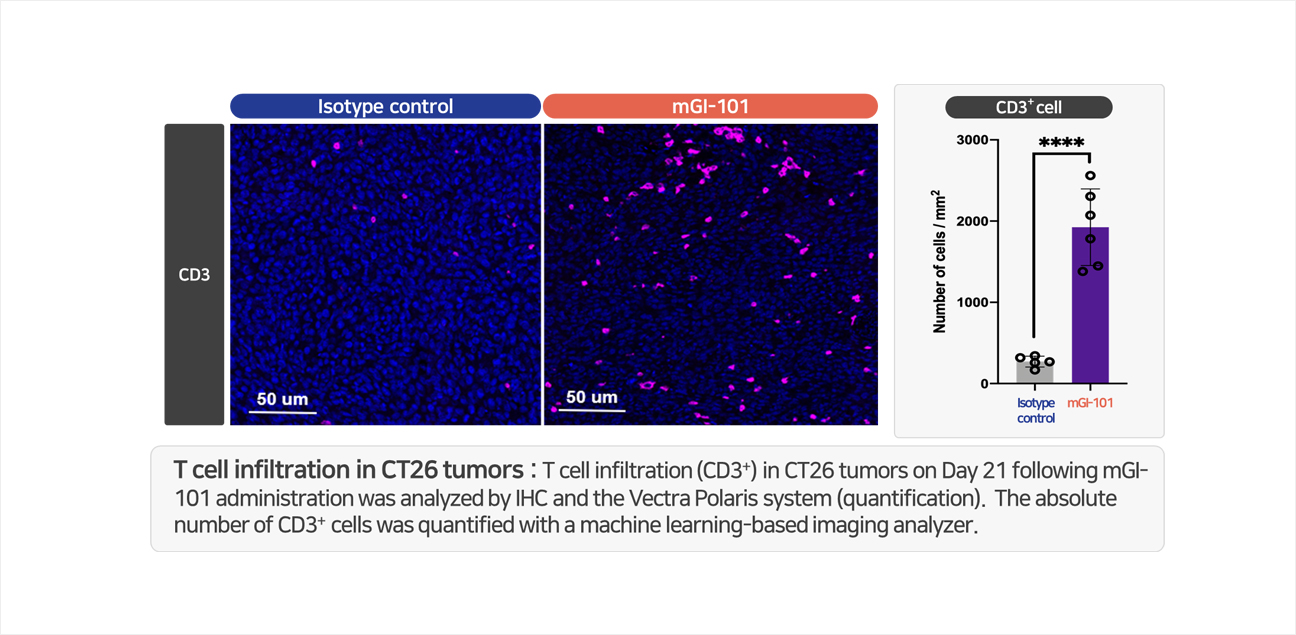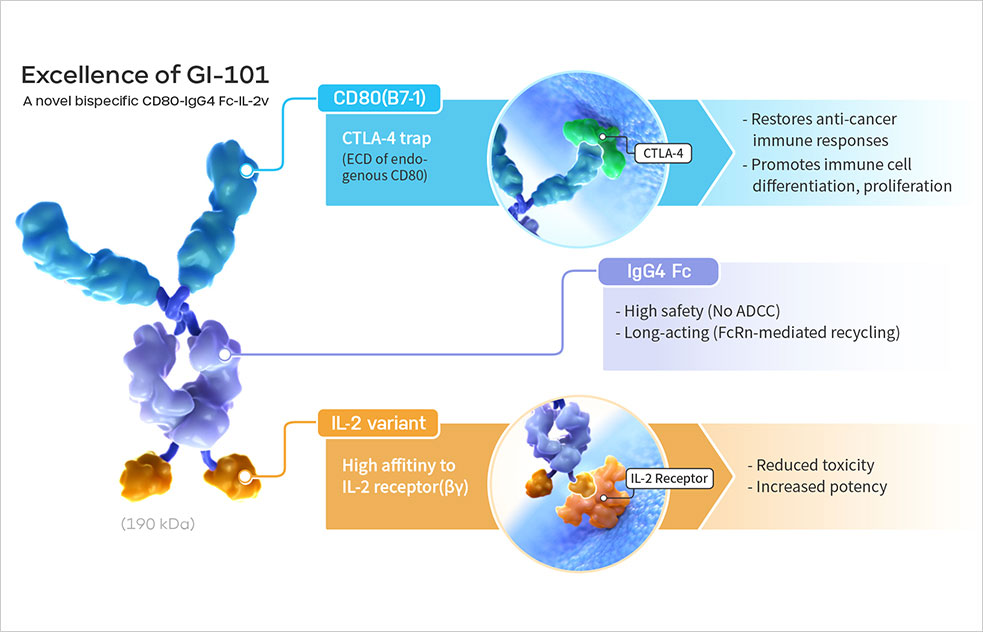
A novel bispecific
CD80-lgG4Fc-IL-2v
GI-101
Features
- A novel bispecific CD80-lgG4 Fc-IL-2v for immuno-oncology
-
Promotes the generation of cancer-specific effector T cell (Teff) in lymph nodes, and induces the activation and proliferation of tumor-infiltrating Teff and NK cells.
Controls the immuno-suppressive function of regulatory T cells (Tregs) in tumor microenvironment (TME)
Restores T cell function and anti-cancer immune responses in TME
Secures its safety in GLP toxicity study
DESCRIPTION
- Core Mechanism GI-101
-
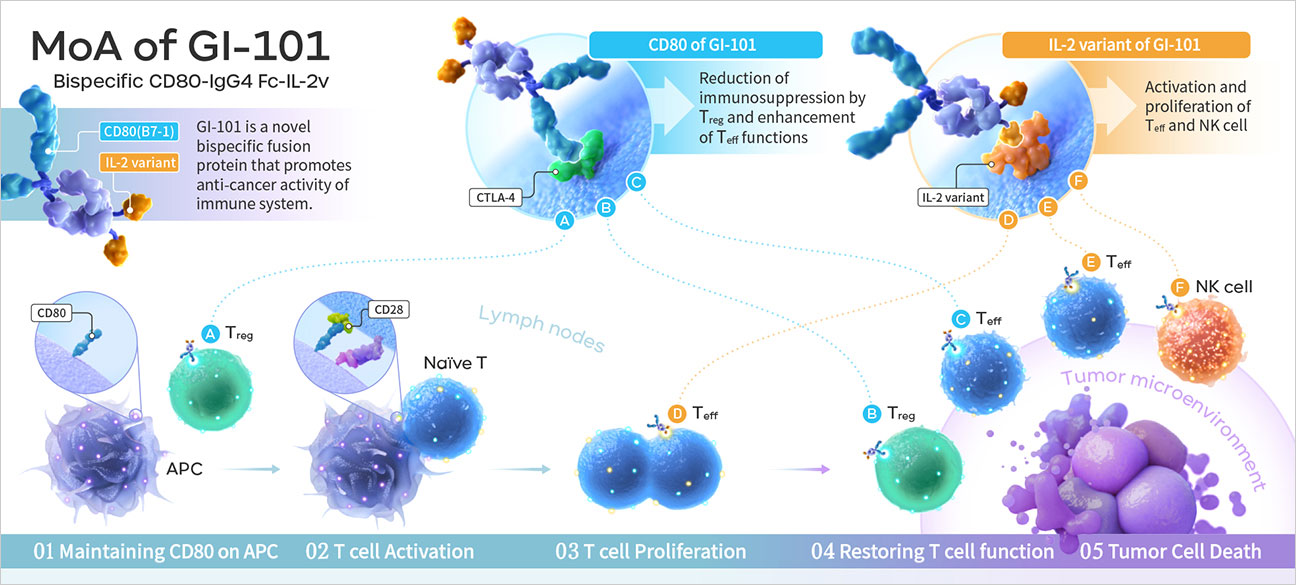
-
01 Maintaining CD80 expressionIn lymph nodes, CD80 of antigen-presenting cells (APCs) binds to CTLA-4 of regulatory T cells (Treg), which in turn, downregulates the expression of CD80. By binding to CTLA-4 on Treg, GI-101 maintains CD80 expression on APC.
-
02 T cell ActivationAPC presents cancer antigens to Naive T cells (Naïve T), which is accompanied by the binding of CD80 on APC and CD28 on Naïve T. This activates Naïve T into cancer-specific T cells that can target and kill cancer cells.
-
03 T cell ProliferationThe IL-2 variant (Interleukin-2 variant) of GI-101 acts as a signal transmitter which promotes the activation and proliferation of cancer-specific, effector T cell (Teff) by binding to its IL-2 receptors.
-
04 Restoring T cell functionTeff travels to the tumor microenvironment (TME) and faces a variety of immune suppressive signals. In TME, CD80 of GI-101 binds to CTLA-4 expressed on the surface of Teff and Treg,
restoring anti-cancer immune responses. -
05 Tumor Cell DeathThe IL-2 variant of GI-101 binds to the IL-2 receptors of Teff and natural killer cells (NK cell). This activates Teff and NK cell, further promoting tumor cell death in TME.
-
data
- GI-101 Data
-
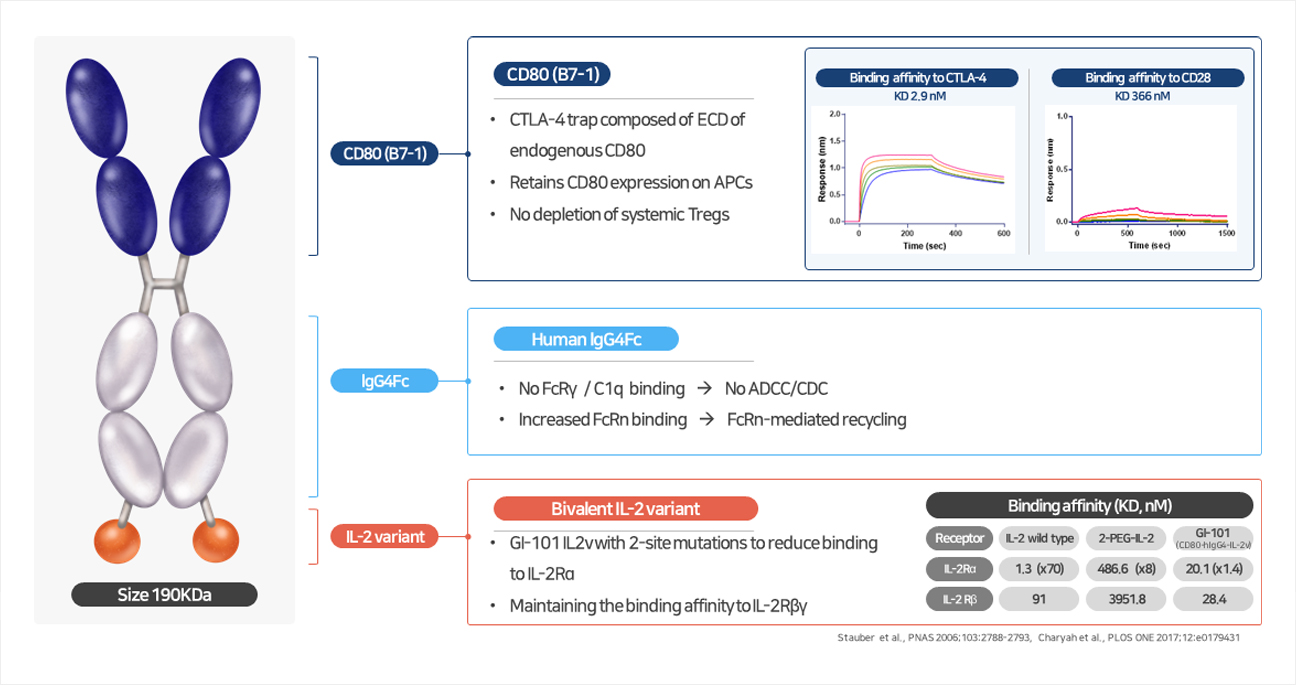
- 01Proliferation and activation of immune cells
-
GI-101 induces in vitro proliferation of functional CD8+ T cells with robust cytotoxicity compared
to rhIL-2
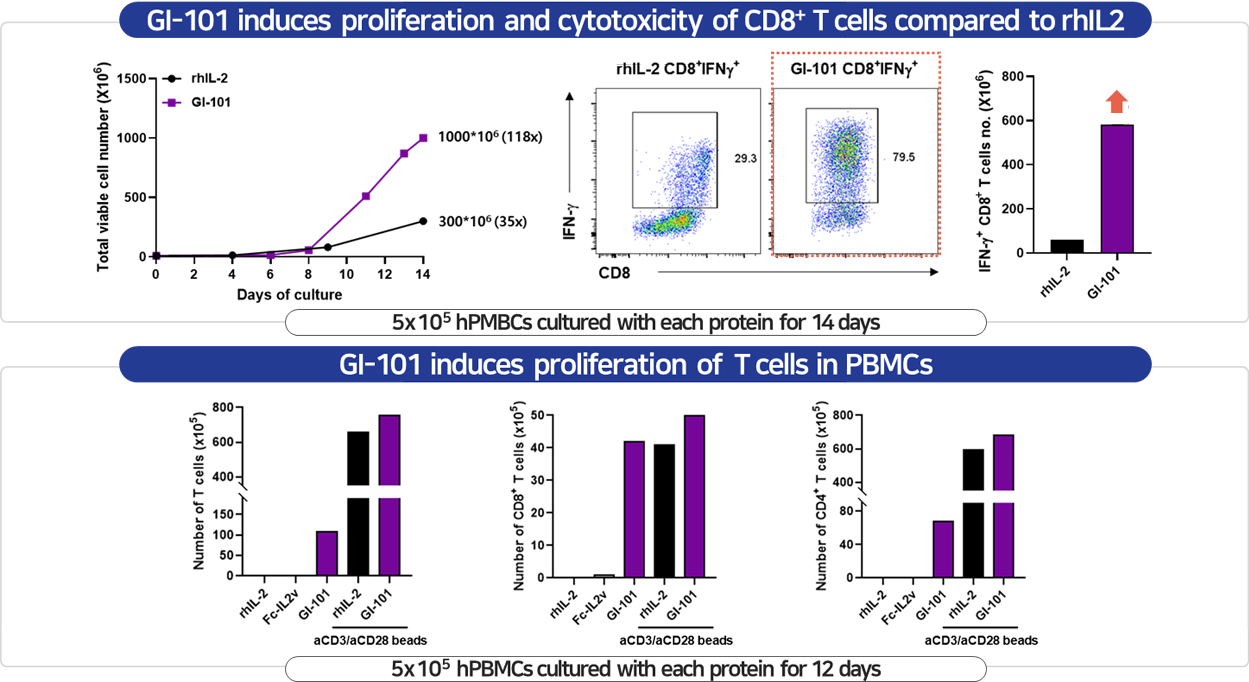
- 02PD effects following repeated administration of GI-101 in monkeys
(PD effects) -
GI-101 shows dose-dependent
increase of blood lymphocytes
(PD effects)
with a consistent magnitude following repeated administration
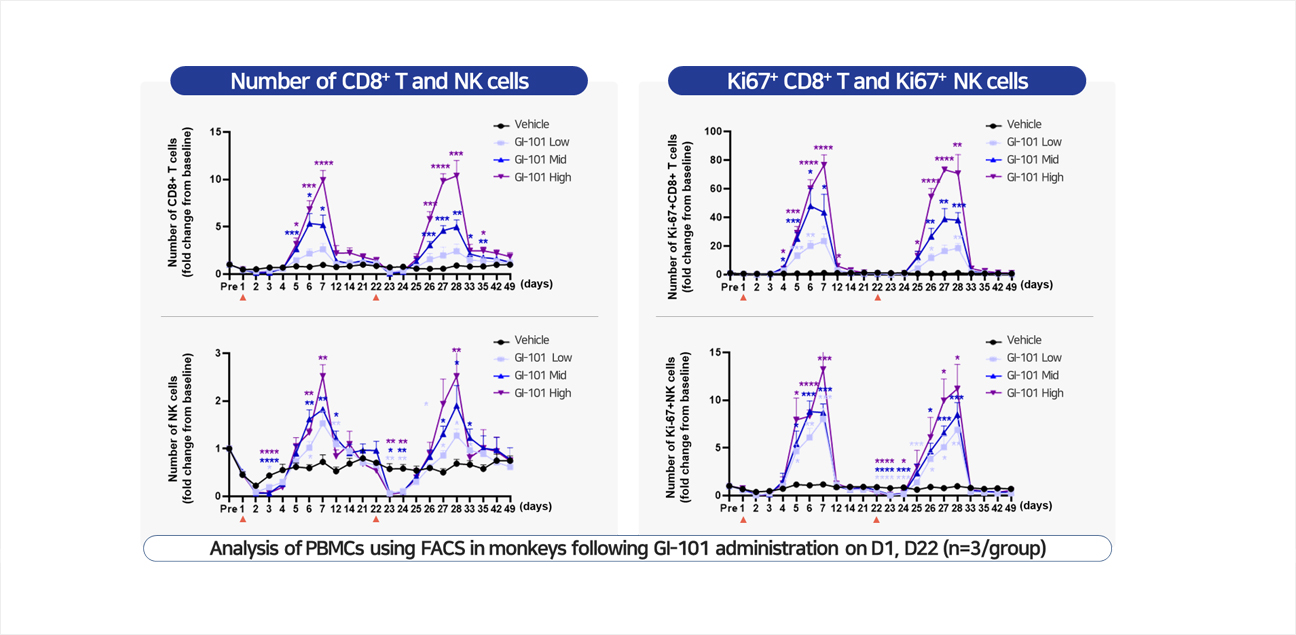
- 03Combination therapy with ICIs
-
GI-101 displays synergistic anti-cancer effects in combination with pembrolizumab (Keytruda®)
in humanized mice model
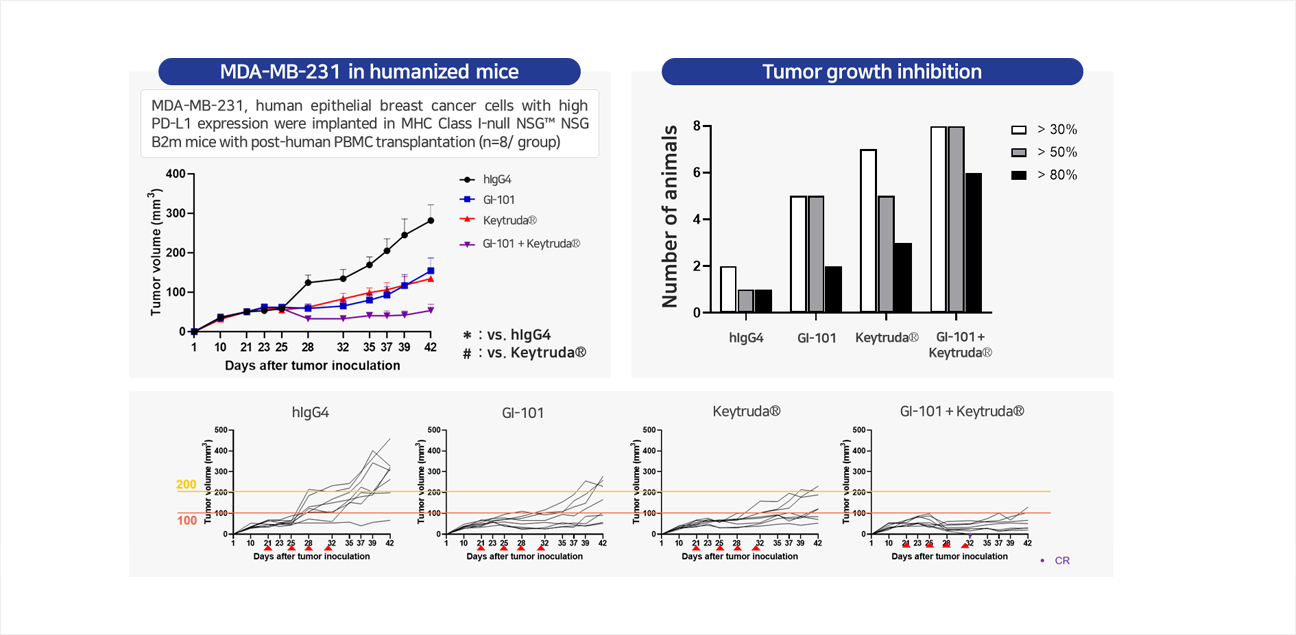
- 04GI-101 monotherapy
-
GI-101 promotes a significant increase of tumor-infiltrating lymphocyte (TIL)
in tumor tissues.
